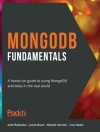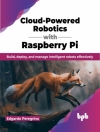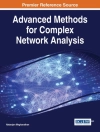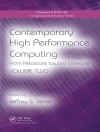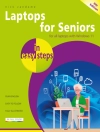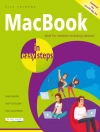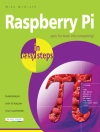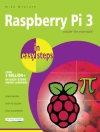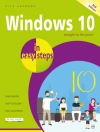This book blends the principles of cloud computing theory and discussion of emerging technologies in cloud broker systems, enabling users to realise the potential of an integrated broker system for scientific applications and the Internet of Things (Io T).
Due to dynamic situations in user demand and cloud resource status, scalability has become crucial in the execution of complex scientific applications. Therefore, data analysts and computer scientists must grasp workflow management issues in order to better understand the characteristics of cloud resources, allocate these resources more efficiently and make critical decisions intelligently. Thus, this book addresses these issues through discussion of some novel approaches and engineering issues in cloud broker systems and cloudlets for workflow scheduling. This book closes the gaps between cloud programmers and scientific applications designers, describing the fundamentals of cloud broker system technology and the state-of-the-art applications in implementation and performance evaluation.
The books gives details of scheduling structures and processes, providing guidance and inspiration for users including cloud programmers, application designers and decision makers with involvement in cloud resource management.
Содержание
1 Integrated Cloud Broker System and Its Experimental Evaluation.- 2 VM Placement via Resource Brokers in a Cloud Datacenter.- 3 Cost Adaptive Workflow Resource Broker in Cloud.- 4 A Cloud Broker System for Connected Car Services with an Integrated Simulation Framework.- 5 Mobile Device as Cloud Broker for Computation Offloading at Cloudlets.- 6 Opportunistic Task Scheduling over Co-Located Clouds.- 7 Mobility-Aware Resource Scheduling Cloudlets in Mobile Environment.- 8 Machine-learning based approaches for cloud brokering.
Об авторе
Chan-Hyun Youn received the B.Sc and M.Sc degrees in Electronics Engineering from Kyungpook National University, Daegu, Korea, in 1981 and 1985, respectively. He also received a Ph.D. in Electrical and Communications Engineering from Tohoku University, Japan, in 1994. Before joining the University, from 1986 to 1997, he was the leader of high-speed networking team at KT Telecommunications Network Research Laboratories. Since 2009, he has been a professor at Department of Electrical Engineering in KAIST, Daejeon, Korea. He also was a Dean of Office of Planning Affairs and a Director of Research and Industrial Cooperation Group at former Information and Communications University, in 2006 and 2007. He was a Visiting Professor at MIT in 2003 and has been engaged in the development of Physio-Grid system with Prof. R.G. Mark`s group in LCP (Laboratory for Computational Physiology) of MIT since 2002. He also is a Director of Grid Middleware Research Center at KAIST, where he develops core technologies in the areas of mobile cloud, mobile collaboration system, Internet computing workflow management, distributed network architecture, communication middleware, advanced e-Healthcare system, e-Health application services and others. Currently, he is serving Editor-in-Chief in KIPS (Korea Information Processing Society), and Editor of Journal of Healthcare Engineering (U.K.), and served head of Korea branch (computer section) of IEICE, Japan (2009, 2010). He is a member of IEEE, KICS and IEICE, respectively.
Min Chen is a professor in School of Computer Science and Technology at Huazhong University of Science and Technology (HUST). He is Chair of IEEE Computer Society (CS) Special Technical Communities (STC) on Big Data. He was an assistant professor in School of Computer Science and Engineering at Seoul National University (SNU) from Sep. 2009 to Feb. 2012. He serves as editor or associate editor for Information Sciences, Wireless Communicationsand Mobile Computing, IET Communications, IET Networks, Wiley I. J. of Security and Communication Networks, Journal of Internet Technology, KSII Trans. Internet and Information Systems, International Journal of Sensor Networks. He is managing editor for IJAACS and IJART. He is a Guest Editor for IEEE Network, IEEE Wireless Communications Magazine, etc. He is Co-Chair of IEEE ICC 2012-Communications Theory Symposium, and Co-Chair of IEEE ICC 2013-Wireless Networks Symposium. He is General Co-Chair for the 12th IEEE International Conference on Computer and Information Technology (IEEE CIT-2012) and Mobimedia 2015. He is General Vice Chair for Tridentcom 2014. He is Keynote Speaker for Cyber C 2012, Mobiquitous 2012 and Cloudcomp 2015. He is a TPC member for IEEE INFOCOM 2014. He has more than 260 paper publications, including 100+ SCI papers, 50+ IEEE Trans./Journal papers, 6 ISI highly cited papers and 1 hot paper. He has published a book on Io T: OPNET Io T Simulation (2015) with HUST Presss, and a book on big data: Big Data Related Technologies (2014) with Springer Series in Computer Science. His Google Scholars Citations reached 5, 200+ with an h-index of 34. His top paper was cited 640 times, while his top book was cited 420 times as of Aug 2015. He is an IEEE Senior Member since 2009. His research focuses on Internet of Things, Mobile Cloud, Body Area Networks, Emotion-aware Computing, Healthcare Big Data, Cyber Physical Systems, and Robotics, etc.
Patrizio Dazzi is a researcher at the Information Science and Technologies Institute (part of the Italian National Research Council) working on high performance computing and highly distributed systems. He graduated in Computer Science in 2003 at the University of Pisa, in 2004 completed an MSc in Computer Technologies, and was awarded a Ph D in 2008 with a thesis titled “Tools and Models for High Level Parallel and Grid Programming”. In 2009 he became a researcher at ISTI-CNR and has beena permanent researcher there since 2012. He is currently working in the EU Contrail Project, the goal of which is to design, implement, evaluate and promote an open source system for Cloud Federations. The CNR part of this is mainly involved in the management in federation of clouds.


